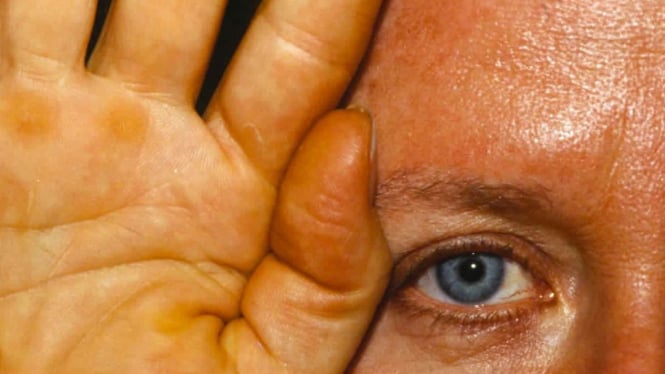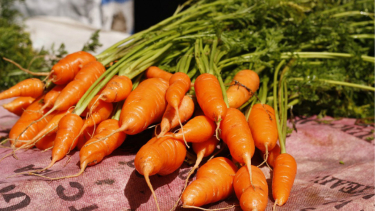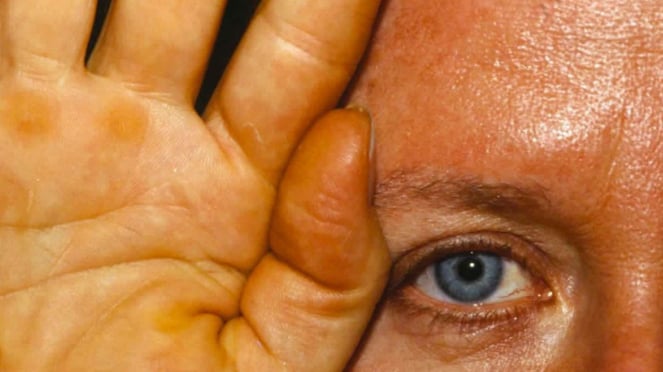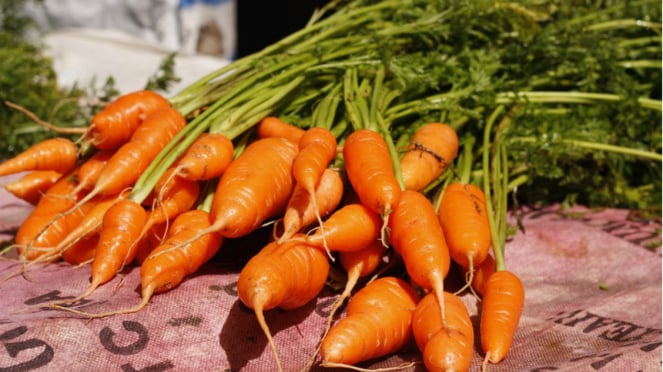- Health Jade
Edinburgh – Not long ago, it became a viral conversation about a woman whose skin turned orange actually caused by excessive consumption of carrots.
The case happened to a teenager in Edinburgh, Scotland named Dena Rendall has told how she ate so many carrots she was left resembling an Oompa Loompa with her bright orange glow.
A 21-year old used to get through up to 10 carrots, three peppers and one sweet potato daily in a bid to boost her health.
Ilustrasi keracunan.
- Health Jade
But she became worried when others noticed that her skin had turned orange and assumed dodgy fake tan, a make-up disaster or jaundice was to blame.
After looking up her condition online, she self-diagnosed herself with carotenemia – build-up in the blood of the pigment that gives carrots their colour.
Rendall, a customer experience worker, cut her carrot intake to eight a day after noticing she looked strangely similar to Roald Dahl's orange-faced characters from Charlie and the Chocolate Factory.
She now eats around six carrots a day - buying 6kg from Asda every week and spending £40 on vegetables in total - which she hails for leaving her with a tan 'all year round'.
Ms Rendall's love of carrots began aged 12, when she started eating around one or two per day which slowly increased to up to a mammoth 10 per day.
She said: 'When I started getting into dieting, I started eating carrots but a normal amount maybe one or two per day. Then at some point I was eating ten carrots every single day,"
'I do really love carrots and enjoy eating that many a day, but I know I don't necessarily eat in a way that's normal to other people. I've convinced myself I'm never unwell because of all the fruit and veg I eat in a day," she continued.
She first noticed the change in her skin colour while at school, when her peers began to ask whether she was wearing fake tan or makeup.
"People at school were starting to notice and asking me if I was wearing fake tan which made me a bit insecure. Every time when I walked into school people would say "oh are you wearing make-up today," Rendall remarked.
"I'm not someone who wears makeup and that's why I think people thought has she tried to do her makeup and miserably failed" because she doesn't do her make-up regularly,"
Her mother also noticed her skin colour and worried that she might have jaundice – yellowing of the skin due to a liver problem.
Ilustrasi wortel.
- Pixabay/ahik
At this point, she hadn't linked her carrot habit to the yellowing of her skin.
However, her mother then remembered a cousin who used to eat a lot of carrots and sometimes looked a little orange.
After researching her symptoms, Rendall self-diagnosed herself with carotenemia.
Oranges and other fruits, such as mangoes, apricots and pumpkins contain a natural pigment called beta carotene.
This substance gives them their distinctive hue. Over time, consuming excessive amounts of beta carotene can cause the skin to turn a yellow-orange colour.
Carotenemia, as it is medically known, is harmless. But it can take several months for the skin to return to a normal colour.




























